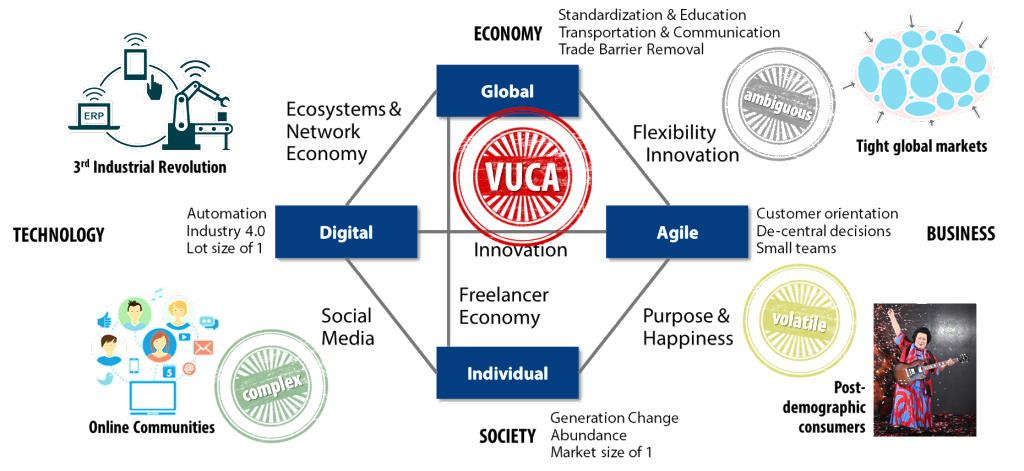This article is inspired by Emma Rose Bienvenu’s article 7 Predictions for a Post-Coronavirus World
Futurism is a discussion that thrives on openness, diversity, inspiration, and productive dissent. Let’s discuss this.
As much as we feel that Covid-19 is a life-changing experience, the world we grew up in still exists and works.
The recent developments may not be permanent. A data point does not make a trend. You need at least two. But in turbulent times, even this may not suffice.
When putting on our foresight goggles, we need to connect the new with the old. The immediate future is mostly a continuation of the past. The old is also often more persistent because it is merely older and has proven itself more. Its trends are harder.
When shining the light on the future, we need to, first of all, understand new developments. Then, we need to judge how they fit in with what is already there. Finally, we need to look at the nature of their interaction and determine if they reinforce or limit each other.
In VUCA times, this is a highly complex exercise requiring systems thinking beyond the scope of a single article. But let me add a few perspectives along those lines that hopefully contribute to the ongoing discussion.
Global warming: Our planet may indeed benefit from remote work and less transportation. This is true until transportation is emission-free and our world operates on abundant and cheap renewable energy. At that time, we may enter a phase of limitless harmless mobility and possibilities. Humans are physical beings, and our cravings for this may be unbearable soon.
Cyberthreats: The increasing dependence of remote work on IT carries its risks. What do we do when the next virus hits our computers? At a time, when we have given up all office spaces and cannot gather physically for work anymore. Our goal is to build resilience and options. Shifting from one to the other extreme will not do.
Economics: As much as we want to reduce our dependence on China and India as our medicine factories, centralized production keeps costs down. This logic has not changed. Capitalism still rules. Over-strained budgets after this crisis will limit the ability of our governments to make decentralization economically viable. Also, decentralization takes time. We may find that it may not happen at all. Unless…
Industry 4.0: In the long run, this is the trend to watch that may make decentralization cost-effective. It allows companies to produce closer to the customer. It reduces delivery cost, CO2 emissions, and shortens the delivery time of customized products. More importantly, it enables factories to quickly retool and shift production to products in urgent need. In the future, your car factory may indeed be able to produce ventilators at the push of a button. No presidential order needed.
Privacy and human rights: We are fighting viruses, not humans. Humans are victims, not villains. In light of immediate danger, we have taken desperate measures. They will be re-visited and may be short-lived given our still intact fundamental rights.
Automation: Combining technologies like digitization, AI, IoT, and robotics offers a huge automation potential. We are only beginning to understand that potential. The Covid-19 crisis may indeed accelerate this. Stress on our other social, taxation and value systems may increase. Regulation may slow down automation.
Agility: Agile ways of working create spaces where humans can continue to add value in an automated world of work with their ability to collaborate, envision, and innovate. Collaborating is easier physically and may limit the extent to which remote work is feasible.
In summary, embracing technology and boldly experimenting with new ways of working and systemic change may be the way out of our current challenges.
The revelation that we can indeed take drastic action if we only have urgency and clarity is, for me, the most significant learning from Covid-19.
If we implement our learning from the Covid-19 crisis well and bring them together to address our other, older, and more fundamental challenges we may find that the future is brighter and better than we can imagine at the moment.
These are my personal views. You may or may not agree. But I hope that it helps you to form your own opinion.
The future is not predicted but shaped. And it is not about THE future but YOUR future.
Take an active role, form, and voice your opinion. Gain the clarity and urgency that compels you to act.
Let’s continue the discussion and let’s envision a world where everybody can enjoy the future that they would like to happen.


